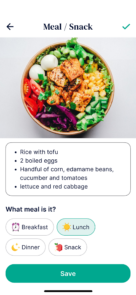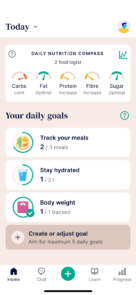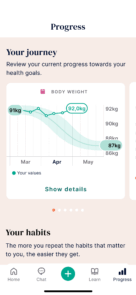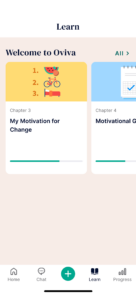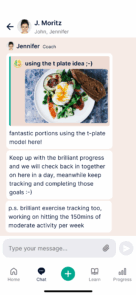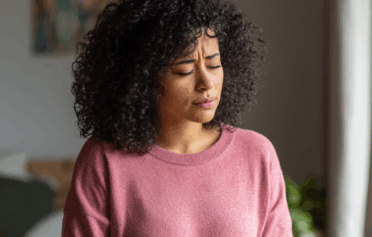
How to track your weight loss and measure progress
Tracking your weight loss can have a bigger impact on your progress than you might expect. When you measure weight loss, you can see your progress, stay motivated and make adjustments. It can also boost your weight loss results and it helps keep you accountable.
The Oviva team are big advocates of weight loss tracking, which is why you’ll find effective tracking through our weight loss app. Track food, exercise, your mood and more easily.
Plus, access a personal weight loss coach and healthcare experts that will help you create a tailored weight loss plan – all NHS-funded!
Key Takeaways
- You’re significantly more likely to achieve consistent weight loss over time if you track progress daily.
- Keeping a food diary has the potential to double your weight loss results.
- Tracking your weight loss can have a ripple effect across your lifestyle, leading to self-development and greater well-being.
- You can track weight loss progress by measuring changes in your weight, body mass index (BMI), waist circumference, clothing size and more.
How to tell if you’re losing weight
An easy way to tell if you’re on the right path is to measure weight loss over time using bathroom scales. For best results, weigh yourself once a week.
Try not to obsess about individual readings, as it’s normal for weight to fluctuate day to day. By tracking these readings over time, you’ll build a picture of the overall trend and whether you’re losing weight.
The importance of tracking to measure your weight loss progress
To fully understand your progress, it’s helpful to track various aspects of your weight loss journey. This includes:
- Your weight or body measurements
- What you eat
- How much you eat
- Exercise you do
You might also want to track your sleep patterns, energy, mood, bowel movements and, if relevant, blood glucose and blood pressure. That’s because, as you make healthier life choices, you’ll likely find that these improve too!

While you may think only tracking your weight or inches lost is important, research shows keeping a food diary has the potential to double your weight loss results!
The best weight loss app should include easy tracking for all of the above, and it doesn’t have to be expensive – there are plenty of free alternatives to Weight Watchers, Noom and other apps you need to pay for.
The free Oviva app includes a photo food diary, so meal tracking has never been easier – you simply upload a photo of your meal and you’ll get real time feedback on it!
How should you measure weight loss?
Learning how to do body measurements and weigh yourself accurately make sure that you’re using the correct information so you can continue to lose weight safely.
Using scales
To accurately measure your weight, you need to stand still on a set of bathroom scales and read the weight displayed. Use a firm, even floor and try to use the same surface each time.
Always weigh yourself at roughly the same time of the day – preferably in the morning, before you eat your first meal. This helps you get consistent readings, which makes your weight tracking more accurate. You should also wear as little clothing as possible; ideally nothing, but be consistent either way.
Once you know your weight, you can add it to your weight tracker app.
If you also know your height, you can use your weight to calculate your BMI. This can help you determine whether you’re overweight, underweight, or in the healthy range for your height.

Without scales
You can also track your weight loss by taking body measurements.
One option is to measure your waist circumference. According to NICE, you should breathe out naturally and measure halfway between the bottom of your ribs and the top of your hips. If you’re losing weight, your waist circumference should reduce over time.
You can then use this waist measurement to calculate your waist-to-height ratio (dividing your waist by your height). This helps you understand the fat around your midsection which is strongly linked to weight-related conditions like heart disease and type 2 diabetes.
NICE recommends aiming for a waist-to-height ratio of under 0.5 to minimise health risks.
It’s usually easiest to use centimetres as the metric for both your waist and height.
For example, if you have:
- A height of 165 cm
- A waist measuring 100 cm
You’d calculate your waist-to-height ratio as follows:
100 / 165 = 0.6
Your waist-to-height ratio would, therefore, be 0.6 which would be classed as high risk.
Another simple way to track weight loss is to pay attention to your clothes and how they fit.
How to track your weight loss
Whichever method you choose to measure your weight loss, tracking these measurements over time is a concrete way to determine your progress. This allows you to understand whether or not your weight is trending downward and how quickly.
Keeping all your measurements stored in one place makes it easier for you to see trends. You could even create a graph to help you visualise the trajectory of your weight loss.
Some weight loss tracking apps may create the chart for you based on the data you input.
Using an app to track weight loss
Weight loss apps can help you track your weight loss by making it easy to enter your measurements, store them and see progress or trends over time.
Some popular weight loss apps include Noom, MyFitnessPal and WW (formerly Weight Watchers). If you’re eligible for Oviva , you’ll get access to our Oviva app.
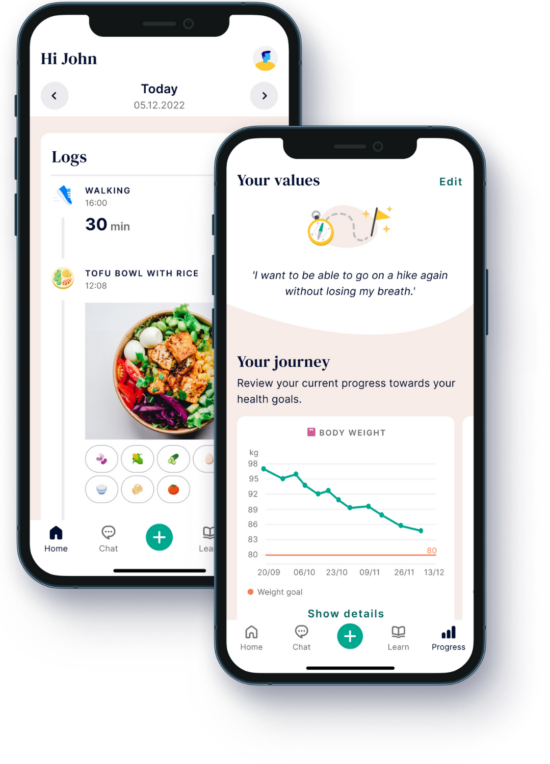
The Oviva app
The Oviva app allows you to track a variety of metrics on your weight loss journey including:
- Weight
- Food
- Physical activity
- Water intake
- Mood
- Blood glucose (if you’re diabetic)
- Blood pressure
The app also lets you set a weight loss goal with the help of your personal coach.
Our app can support you every step of the way, providing you with personalised feedback and guidance to help you achieve your goals and live a healthier and happier life. You’ll also benefit from your own dedicated health coach, who is there to support you all the way.
Tracking non-scale victories (NSVs)
In addition to tracking your weight and body measurements, it’s also important to log or track other aspects of your weight loss journey and any improvements in health and well-being.
This includes your daily energy levels, sleep quality and quantity, fitness progress (e.g., strength and endurance) and emotions. These broader health and well-being changes are the ultimate reason for weight loss, rather than simply focusing on the numbers that appear on your scales.
If you have certain health conditions, like joint pain, high blood pressure or sleep apnoea, you may want to track the severity of the symptoms and look out for signs of improvement.
These non-scale victories (NSVs) are important reminders that your weight loss journey is really a journey of self-improvement, and seeing progress can do wonders for your motivation.
Consistency is key
Keeping track of your weight loss progress is useful. It’s also essential to try to avoid becoming disheartened if you see a particular metric temporarily going in the wrong direction or if you hit a weight loss plateau during your journey.
Studies have shown that consistency is everything, with rare or inconsistent trackers (less than two thirds total days tracked) not receiving the full weight loss benefits. You’re significantly more likely to achieve consistent and continued weight loss over time if you track progress day after day.

If you’re inconsistent with dietary tracking, or if you measure your weight loss progress sporadically, you’re also less likely to achieve long-term progress.
Even on a week-to-week basis, studies show your weight loss will typically be more significant during weeks when you track daily.
And there’s good evidence to suggest you should start tracking even if you’ve already started your weight loss journey.
And when you engage in weight loss behaviour tracking, such as logging your food intake or exercise, you can develop a greater awareness and control over your behaviours.
This, in turn, can increase self-efficacy and confidence, making you more likely to make healthy choices in other areas of your life, like self-development and improved well-being.
Be mindful of your mental health
Although tracking your weight loss can have a positive impact on results, it’s essential to be mindful of your mental health. Some people become obsessive over the scales and develop a negative self-narrative that can harm progress.
If you notice signs that you’re becoming obsessive or overly self-critical about weight loss tracking, speak to a healthcare professional for support on managing these feelings.
If you’re eligible for Oviva, you’ll be supported by a team that includes psychologists. They’re here to help with behaviour change – not to provide mental health care. For emotional support, speak to your GP.
Oviva patient success stories:
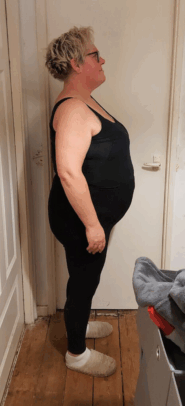
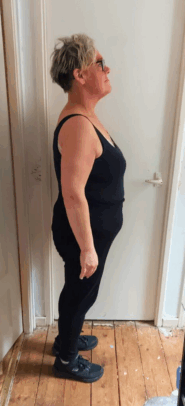 -22kg
-22kg
Heidi (53)

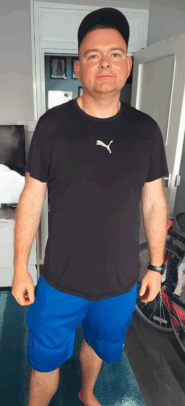 -25kg
-25kg
Martin (34)
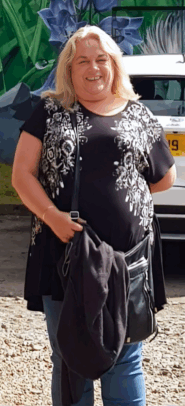
 -32kg
-32kg
Patricia (53)

A weight loss programme designed for success
Oviva is an NHS-accredited programme for weight management.
You’ll have access to personalised care from dietitians, psychologists, doctors and other healthcare professionals, and you’ll also be able to access weight loss medication on the NHS.
After you join, you can use the Oviva app for tracking weight loss, food intake, mood and exercise, which can help you to stay motivated and accountable. The programme is designed for long-term success, and you’ll learn to develop healthy habits for weight loss.
Your GP can tell you if you’re eligible! Simply book an appointment and take our info pack – it’s got everything you need to start the conversation.

